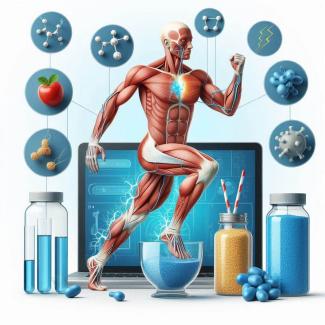This comprehensive resource provides everything you need to know about minerals, essential nutrients that play crucial roles in maintaining health. Explore the different types of minerals, including macrominerals like calcium and magnesium, and trace minerals such as iron and zinc. Learn about their functions in the body, including bone health, enzyme function, and electrolyte balance. We also cover the symptoms of mineral deficiencies, recommended daily intakes, and the best food sources to ensure you're meeting your nutritional needs for optimal wellness.
Copper is an essential trace element that plays several important roles in the human body. It is necessary for various physiological functions and overall health.
Eggs have been a subject of debate when it comes to their impact on heart health due to their cholesterol content.
Selenium is a trace mineral essential to human health, playing a crucial role in various physiological processes.
Potassium is an essential mineral and electrolyte that plays a crucial role in maintaining various bodily functions.
Egg production methods can vary significantly in terms of animal welfare, environmental impact, and the quality of the eggs produced.
Quinoa (pronounced "keen-wah") is a plant and food grain that originates from South America, primarily the Andean region.
Eggs are nutritionally rich and versatile foods with several health benefits. Let's take a detailed look at some of the key advantages of consuming eggs:
Eggs are widely recognized as a highly nutritious and versatile food. They are a rich source of high-quality protein, essential vitamins, and minerals, all packed in a small, low-calorie package.
Nails are not only a key part of our appearance but also an important indicator of our overall health.









